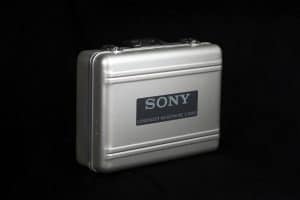A popular topic in the recording studio these days is The Loudness War. The Loudness War is the popular name given to the trend of increasing audio levels on CDs and in digital audio files since the early 1990s, which many critics believe reduces sound quality and listener enjoyment. Increasing loudness was first reported as early as the 1940s with respect to mastering practices for 7″ singles. The maximum peak level of analog recordings such as these is limited by varying specifications of electronic equipment in the recording studio along the chain from source to listener, including vinyl record and cassette players.
With the advent of the Compact Disc (CD), music is encoded to a digital format with a clearly defined maximum peak amplitude. Once the maximum amplitude of a CD is reached, loudness can be increased still further through signal processing techniques performed in the recording studio such as dynamic range compression and equalization. In the recording studio Engineers can apply an increasingly high ratio of compression to a recording until it more frequently peaks at the maximum amplitude. In extreme cases, efforts to increase loudness can result in clipping and other audible distortion. Modern recording studio produced recordings that use extreme dynamic range compression and other measures to increase loudness therefore can sacrifice sound quality to loudness. The competitive escalation of loudness has led music fans and members of the musical press to refer to the affected albums as “victims of the loudness war.”
Recording Studio: Rick Rubin
Legendary producer Rick Rubin is said to be contributing to the phenomenon.
Since at least 1999, Rubin has been criticized by listeners for contributing to this phenomenon. Albums produced by Rubin that have been criticized for such treatment include:
Californication by the Red Hot Chili Peppers (1999) – Tim Anderson of The Guardian criticized its “excessive compression and distortion”,and Stylus Magazine said it suffered from so much digital clipping that “even non-audiophile consumers complained about it”.
Death Magnetic by Metallica (2008). Some fans have preferred the Guitar Hero version of Death Magnetic, even though it was released for gameplay and not listening, because it was not subject to the same compression.
13 by Black Sabbath (2013) – Ben Ratliff of The New York Times said, “The new Black Sabbath album was produced by Rick Rubin, who some believe to be a prime offender in the recent history of highly compressed and loudly mastered music – a major cause of ear fatigue … 13 is mastered loudly, too … Your ears aren’t given room to breathe”.[29] Jon Hadusek of Consequence of Sound wrote, “Rubin … deserves disparagement for the way he mixed the audio levels, which are crushed by distortion and compression. Otherwise well-recorded songs are blemished, an affliction all too pervasive in the modern music industry”




